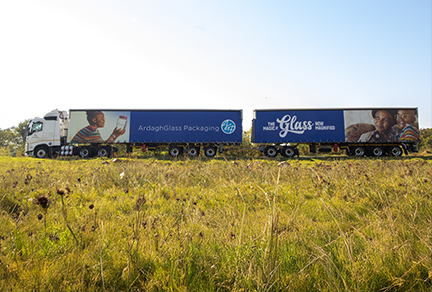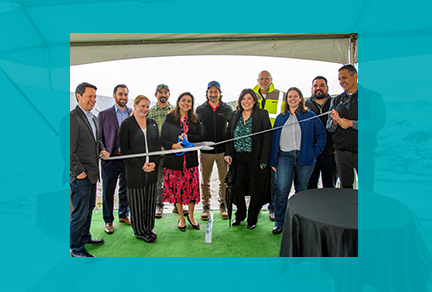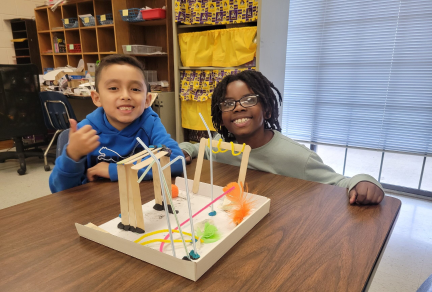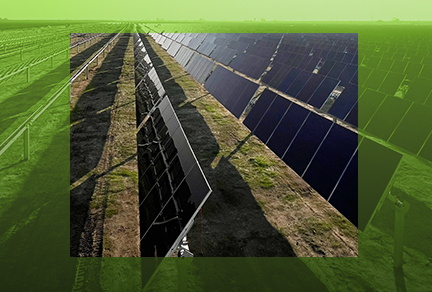Ardagh Glass Packaging welcomes glass industry partners to NextGen Furnace launch event
Published: November 10, 2023
From 7-9 November, Ardagh Glass Packaging (AGP) welcomed customers, suppliers, policy makers, industry partners and media to an official opening of its new NextGen furnace in Obernkirchen, Germany, to see some of the first amber bottles being produced from the low-carbon technology. The NextGen furnace started up as a conventional furnace using 20% renewable electricity and 80% gas and is now progressing through a planned start-up sequence in switching to a target of 80% renewable electricity and 20% gas over the coming months, to deliver maximum energy efficiency and decarbonisation.
Jens Schaefer, Operations Director, AGP-Germany, commented: “We are delighted with the start-up performance of the NextGen furnace. To see the first amber coloured bottles coming off the line has been a proud moment for the team.”
To coincide with production of the first amber bottles, a recent independently verified Life Cycle Analysis has indicated that, once the NextGen furnace is operating at 80% renewable electricity and 20% gas, there will be a 69%* reduction in CO2 from a typical 330ml glass bottle produced in the new furnace, compared with one produced in a conventional AGP furnace.
Martin Petersson, CEO AGP-Europe, says “This is an incredible breakthrough for the glass industry. The potential to produce a glass bottle with a 69% reduction in CO2 is a significant step towards decarbonising the glass manufacturing process. “Throughout this project, AGP has worked closely with SORG, our chosen furnace supplier. We appreciate their expertise in helping us to reach this important milestone and we will continue to work together throughout the next operational stages.”
*The 2023 Life Cycle Analysis demonstrates the carbon savings per glass bottle to be produced in the NextGen Furnace, compared to a bottle from a conventional AGP furnace. A typical 330ml glass bottle produced in the conventional AGP furnace at Obernkirchen produces 140.1g of CO2, compared with one to be produced in the NextGen Furnace once fully operational at 80% renewable electricity and 20% gas, which will produce 43g of CO2: a 69% reduction across Scope 1, 2 and 3 emissions. Depending on the production mix, the NextGen Furnace could save up to 45,000 tonnes of carbon every year, compared to a conventional furnace.
The grant support provided by BMWK1 and KEI to qualifying energy-intensive industries in Germany, is helping to realise the benefits of this new technology.
[1]Bundesministerium fur Wirtschaft und Klimaschutz (Federal Ministry for Economic Affairs and Climate Action) and KEI: Klimaschutz in Energieintensiven Industrien (Climate Protection in Energy-Intensive Industries).
Forward Looking Statements
This press release includes forward-looking statements. These forward-looking statements are subject to known and unknown risks and uncertainties, many of which may be beyond our control. We caution you that the forward-looking information presented in this press release is not a guarantee of future events, and that actual events may differ materially from those made in or suggested by the forward-looking information contained in this press release. Any forward-looking information presented herein is made only as of the date of this press release, and we do not undertake any obligation to update or revise any forward-looking information to reflect changes in assumptions, the occurrence of unanticipated events, or otherwise.









